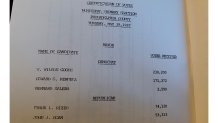What to Know
- No incumbent Philadelphia mayor seeking re-election has faced a serious primary challenge since 1987.
- Mayor Jim Kenney this year is being challenged by two of the city's better-known Democrats.
- State Sen. Anthony Hardy Williams, of West Philadelphia, and former City Controller Alan Butkovitz, of Northeast Philly, are running.
Philadelphia Mayor Jim Kenney remembers the last time an incumbent mayor faced a serious primary challenge — 32 years ago in 1987, when then-District Attorney Ed Rendell tried to unseat Wilson Goode Sr.
"He lost," Kenney said, with a chuckle.
Every mayor since then has faced little or no competition in a Democratic primary, the election that matters most in Philadelphia. In the city, registered Democrats outnumber Republicans seven to one.
Ed Rendell, who ran again in 1991 and won, faced no one in his 1995 re-election bid. John Street faced no one in 2003. Michael Nutter faced a challenge by Milton Street, but Milton Street's campaign was never taken seriously.
Kenney, on the other hand, is facing off against one of West Philadelphia's best-known lawmakers, state Sen. Anthony Hardy Williams, and one of Northeast Philadelphia's best-known politicians, former City Controller Alan Butkovitz.
Neither of the challengers have begun campaigning on a level that would likely be needed to unseat a Democratic incumbent in Philadelphia. However, there are eight long weeks to go until the May 21 primary.
Local
Breaking news and the stories that matter to your neighborhood.
"Everyone has the right to run if they want. I don't know what it is they're offering that's any different, that's any better than what we've been doing," Kenney said during a short interview outside a City Hall event Wednesday. "But certainly it's their right to run. We'll see how it goes."
Williams, in a statement, said he's running because "the culmination of tremendous frustration about city government coupled with a nationwide, new energy in politics, sparked by revelations about the way Philadelphia is run behind closed doors make a powerful equation for change."
Billy Ciancaglini is the lone Republican running for mayor. A Republican hasn't been elected mayor since the 1940s.
Rendell, in an interview, said Butkovitz and Williams may see Kenney as vulnerable for three reasons: the still-lingering divisions over the soda tax, his reliance on campaign contributions in 2015 from now-indicted labor leader John "Johnny Doc" Dougherty, and Kenney's reluctance for self-promotion.
Still, he said the mayor remains a heavy favorite simply because he's the incumbent.
Incumbents are tough to beat, in part because of their name recognition and all the free publicity a sitting mayor gets just by doing the job, Rendell said.
Then there is the challenge of raising money for a municipal primary. Kenney, Butkovitz and Williams have not begun appearing on television or radio, as of late March.
"Depending on the level of funding, you need four of five weeks of good TV," Rendell said. "It's not too late. But they haven't started yet. That doesn't mean they can't produce a good campaign. But I haven't seen any signs of life."
Kenney's milestone achievement in his first term was the soda tax. It could be a driving force for both candidates' campaigns, according to David Thornburgh of the election watchdog, Committee of Seventy.
"One of the undercurrents is the issue of the soda tax and I expect we’ll hear a lot about that," Thornburgh said.
Big Soda has opposed the soda tax vehemently ever since Kenney got it pushed through City Council two years ago. If the industry does flow money into the race, it would follow a pattern that has developed in the last couple elections in Philadelphia, Thornburgh said.
"The nature of local campaigns these days is like we saw this past election in the (Larry) Krasner DA race," Thornburgh said. "The right type of local race can attract outside money."
Kenney, in 2015, received more than $1 million from a Dougherty-connected super political action committee in his first run for mayor.
Two years later, liberal billionaire George Soros poured $1.7 million into the Philadelphia DA's race in support of Larry Krasner.
Williams didn't mention the soda tax in his statement about why he's running to unseat Kenney after one term. Instead, he believes Kenney's base is fractured and said black Philadelphia voters are "deeply disappointed" in the mayor's first four years.
"The base that got Kenney elected in now fractured, both in the black community and in his own historical voting base in South Philadelphia," Williams said. "The 46 percent of African Americans who supported him in 2015 are deeply disappointed and I believe they are ready to stamp the mayor’s 'trust me' account 'OVERDRAWN.'"
Thirty-two years ago, Rendell thought he too could unseat an incumbent. But he says his motive has long been misunderstood.

"People think I did it because Mayor Goode was vulnerable because of MOVE," Rendell said, alluding to the 1985 catastrophe in West Philadelphia when Philadelphia police dropped a bomb on the home of a black liberation group during a stand-off on Osage Street. Eleven people died.
"I jumped in the race because I believed the city was hurtling down extremely fast and that Goode's administration had no plan to stop the downward spiral," he said. "I ran from a purely altruistic view."
Goode beat back Rendell's challenge, but it was a close outcome as far as Philadelphia primaries involving an incumbent go. Rendell learned a lesson that has left others wary — until now.
"I never really came close to mount a serious challenge," he said.
It's Official: Candidates for Mayor, Sheriff, City Council in Philadelphia
Incumbents in nearly every elected position in Philadelphia are facing competition in the upcoming May municipal elections. Notably, Mayor Kenney faces an old foe, and two women are trying to unseat the incumbent sheriff and become the first-ever female sheriff in the city.
Democrat names are in blue and Republicans in red.



